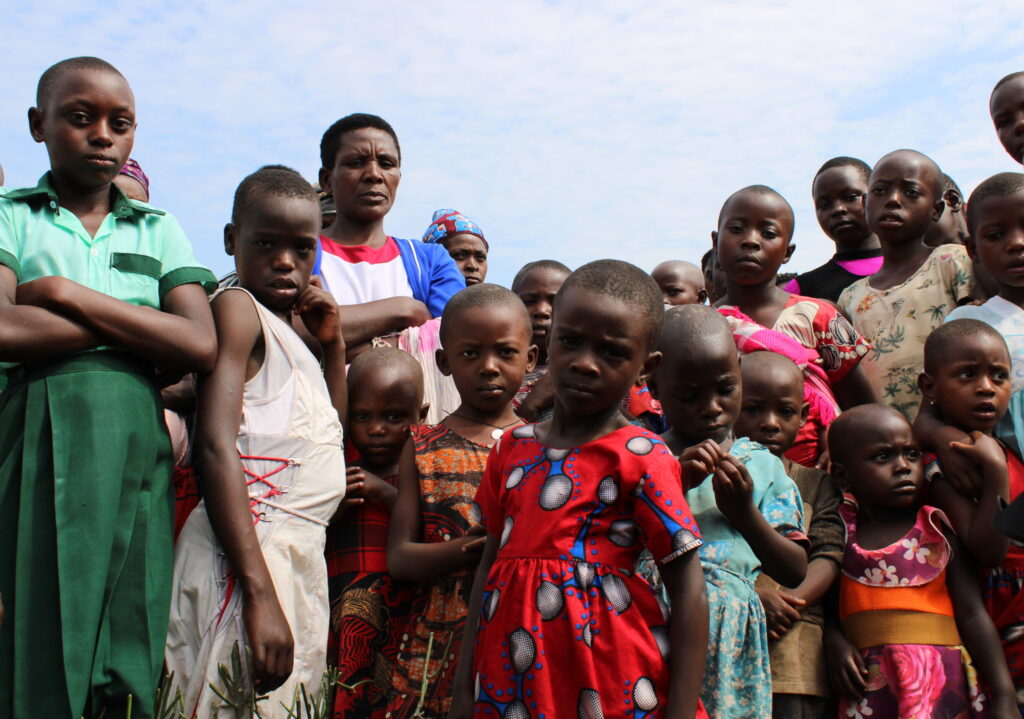
By Molly St. Clair, Western Kentucky University senior Journalism student
Menstruation, one of the most natural and healthiest processes on Earth, impacts half of the world’s population. The menstrual cycle, which allows women to carry and have children, is a process young girls and women experience all around the world.
So, if menstruation is this common and natural, why is it such a universally taboo topic?
The answer is simple: lack of education.
In developed world countries such as the United States of America, society has made large strides toward the education on the menstrual cycle and periods. Menstruation education in schools and easy access to information online or in the media has helped normalize the topics of periods.
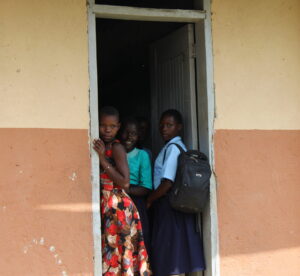
Four Ugandan school girls chat before returning to their seats inside the classroom. Photo by Molly St. Clair.
Additionally, young girls and women have ample resources such as tampons, pads and medicine for cramps available at local stores and clinics. Menstrual health education is also provided in schools.
As a 12-year-old girl, I was embarrassed to have and talk about my period. This is something most young girls go through. However, today as a 20-year old woman, my view of menstruation has changed drastically. I’m confident when discussing menstruation and understand how debilitating period pain and side effects can be.
The difference is I had a mother who explained menstruation before I experienced my first period. I had menstrual education in 6th grade and I have always had access to feminine products.
However, as recently as 30 years ago, “periods” were not an acceptable topic of conversation.
In developing world countries such as Ethiopia or Uganda, menstruation is not only taboo, but also not understood.
For example, menstruating women in Africa are often deemed “dirty” or “gross” despite menstruation being a naturally occurring process in all healthy women.
While cultural change, especially for women, is often slow, it is possible. Organizations like Partners for Community Transformation (PaCT) that partner with Water to Thrive prove this. Although many resources contribute to changing the lives of women, clean water and education are a good place to start especially in regard to the menstrual cycle.
Young girls and women in Ethiopia and Uganda do not have any sanitary products or an understanding of menstrual hygiene.
No pads or tampons, no area to change, and no way to clean themselves.
Lack of resources and health education combined with the fear of being made fun of cause girls to miss weeks of school at a time. This absence results in them falling behind in their studies or dropping out altogether.
In sub-Saharan Africa, 1 in 4 girls, for a variety of reasons including menstruation, have never attended or do not complete primary school. Many girls who drop out are forced to marry at too young of an age because they are not in school.
Fortunately, organizations in Uganda such as PaCT, focus on humanitarian aid, clean water installations and education. One specific project they devote resources to is providing handmade, reusable cloth pads to young girls.
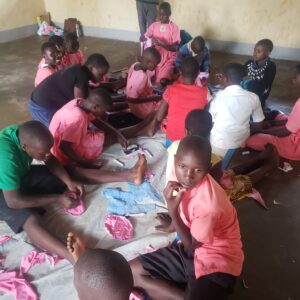
Together, boys and girls learn how to make reusable pads.
Photo by Susanne Wilson.
With these feminine items also comes education of the menstrual cycle to both boys and girls. PaCT also teaches men and women how to sew pads in order to educate and also produce more products for girls and women all over Uganda.
Not only does this change the lives of girls by keeping them in school and fighting against period stigmas, but it also raises new generations to understand and respect this natural process. By educating school aged kids, they can then educate others on the topic. From there, it grows into generational change.
PaCT also focuses on implementing changing rooms and clean water wells in schools by partnering with Water to Thrive. While the wells are for everyone, the combination of changing rooms and clean water gives girls private, safe places to take care of themselves while on their periods at school – without judgment.
Clean water also aids in keeping girls in school because they don’t have to walk miles each day to retrieve dirty water. Additionally, the Water to Thrive wells provide necessary hydration for girls during an often-draining week of their menstrual cycle.
Educating one young girl on menstruation ultimately raises a new generation of empowered women. Whether it’s a developed or developing world country, education and access to sanitary products is essential to effecting positive change. With organizations such as PaCT and Water to Thrive, change is not only a possibility, but tangible for over 607 million females in sub-Suharan Africa.
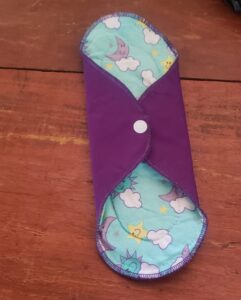
A handmade reusable pad. The button fastens around the underwear and can be cleaned when needed. Photo by Susanne Wilson.

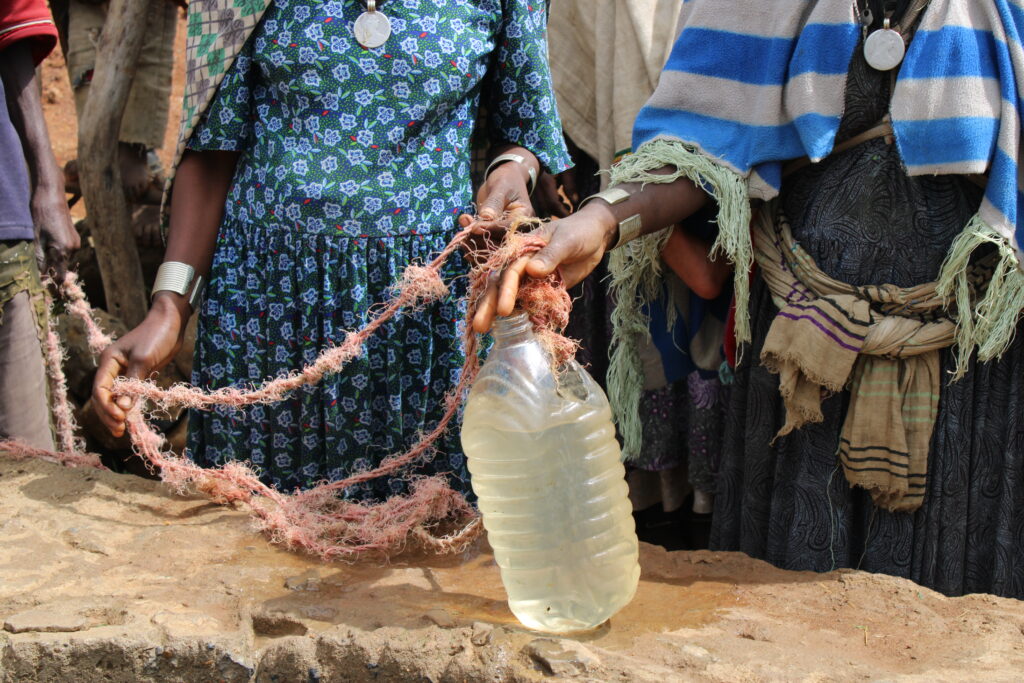
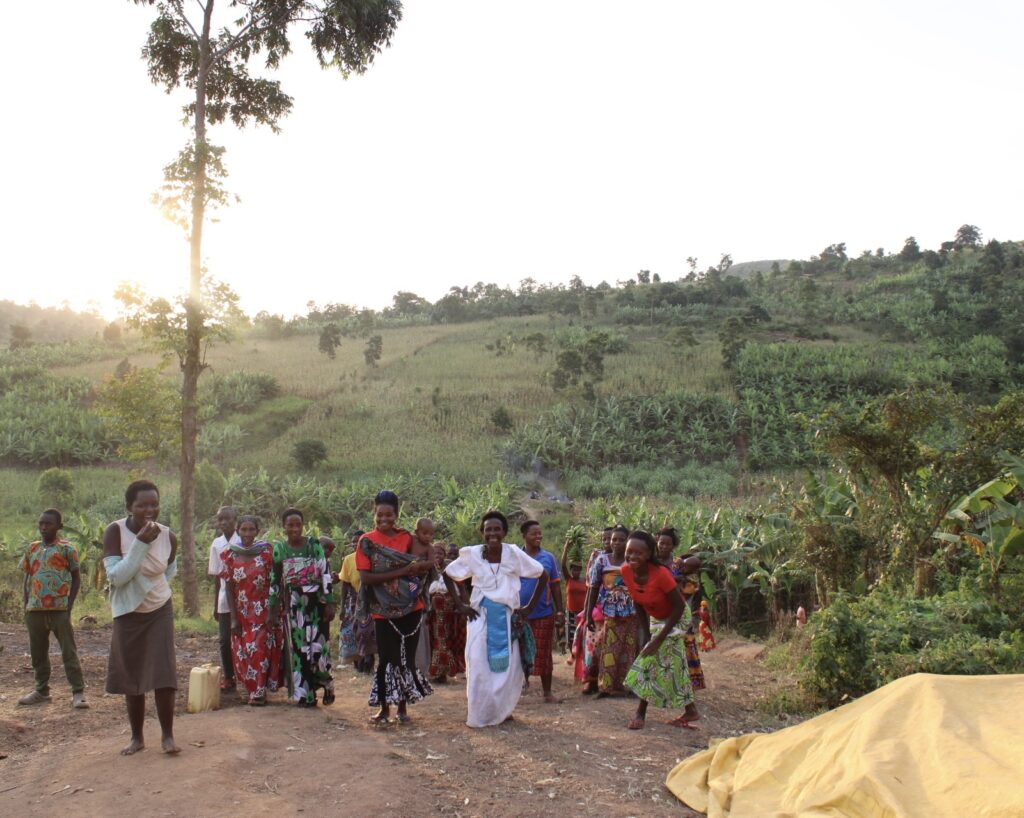
About The Author: Molly Jane St. Clair
More posts by Molly Jane St. Clair